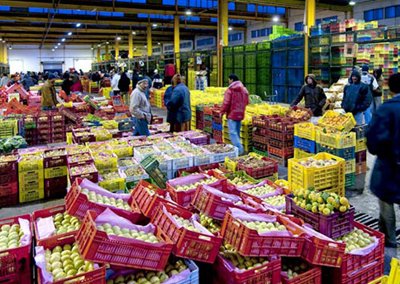The recent, decisive operations by Tunisian authorities against wholesale traders and intermediaries accused of speculation and price manipulation are more than just a routine law enforcement activity. They represent a critical and necessary battle in the ongoing war to protect the purchasing power of every Tunisian citizen.
This past Friday, a coordinated effort led by the judicial police, in collaboration with the Ministry of Commerce and municipal services, resulted in the arrest of over twenty major players across key markets from Bir El Kassâa to Sfax. This action, part of a broader national campaign, sends an unambiguous message: the era of impunity for those who manipulate markets for personal gain is over.
For too long, the “barons of speculation” have operated with a brazen sense of invincibility. They have treated essential goods—fruits, vegetables, and basic consumption products—not as staples for survival but as chips in a high-stakes game of greed. By engaging in grabbing and artificial inflation of prices, these actors have directly assaulted the household budgets of families already straining under economic pressure. They are not savvy businessmen; they are economic saboteurs.
The strategy behind this campaign appears thoughtfully calibrated. It is significant that this latest wave of arrests follows an earlier operation on September 17th that specifically targeted the “most influential intermediaries of informal trade,” with eleven individuals now in pre-trial detention. This two-pronged approach is vital. It demonstrates that the state is not merely cracking down on small-time offenders but is willing to confront the powerful, well-connected figures at the top of this parasitic chain.
Some may argue that market forces should be left unchecked. But what we are witnessing is not free-market competition; it is its criminal perversion. It is an orchestrated effort to create artificial scarcity and distort prices, fleecing the public and undermining legitimate commerce. The state has not just a right but a profound duty to intervene and dismantle these predatory networks.
The true test, however, lies ahead. Arrests are a powerful symbol, but lasting impact is delivered in the courtroom. The competent prosecutions must now follow through with rigorous legal proceedings, presenting airtight cases that lead to convictions and severe penalties commensurate with the damage inflicted on the national economy. This will cement the credibility of the entire operation and serve as a lasting deterrent.
This national campaign is a welcome and courageous step. It aligns the might of the state directly with the interests of the struggling consumer. For the sake of economic stability and social peace, this war on speculation must be pursued with unwavering resolve. The purchasing power of Tunisians is not a commodity to be gambled with. It is a foundation of national dignity that must be fiercely protected.
TunisianMonitorOnline (NejiMed)




